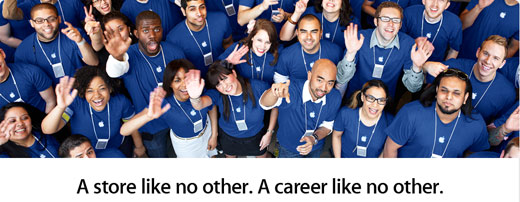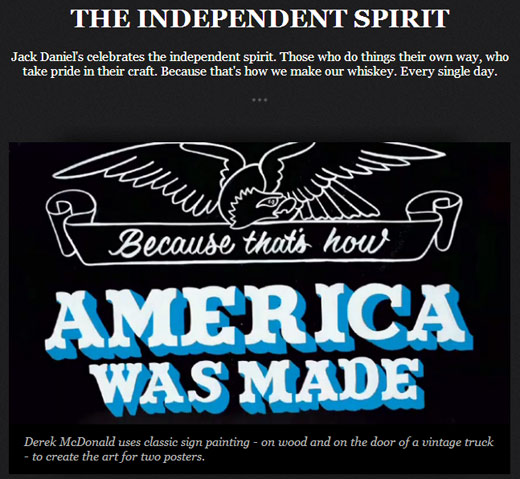1964 might seem like ancient history by now, but The Beatles were bang on the money when they sang ‘Can’t Buy Me Love’. Okay, so it might be a bit of a tall order to make people actually fall in love with your products and services (now that’s what I call marketing!) but what about buying their loyalty?
What does loyalty really mean?
Customer loyalty is a valuable commodity and a loyal customer can pay dividends in more ways than one. But what does loyalty really mean?
Loyal clients and customers are the most valuable assets of a business, and should be treated as such. They stick with a brand even though they have other options because they believe they are being given a better experience, better value and benefits than they would get from other brands. Customers like that are worth their weight in gold, and can usually only be created if they are made to feel they are a business’ number one priority. Here are the top reasons why you should treat them like royalty:
- Marketing, advertising and incentivizing is an expensive business, and it costs a business about 5-10 times more to acquire a new customer than it does to retain and sell to an existing one – so catering to your current clients will save you money
- They love to do the hard work for you. When a client or customer truly loves what you do, they want to tell people about their positive experiences. These are the consumers who use in-person and online conversations to regularly share and endorse your products and services. In short – these brand advocates are the crucial difference between having average audience interaction and genuine influence. This small yet extremely valuable group of advocates should be highly prized because their support, endorsement and recommendations can not only increase awareness, but they can provide social proof to considerably boost your Google rankings. They engender trust and reinforce your business amongst consumers who are unfamiliar with and new to your brand to drive them to ACTION.
- Up and cross-sell strategies are more effective with loyal fans. They trust you, so they are more inclined to be adventurous with their choice of products and services, and they tend to buy for longer, too
- Loyal customers spend on average 67% MORE than new ones with repeat purchases – making them high ROI prospects. Research shows that return and repeat purchasers have higher average order values and conversion rates than shoppers with no previous purchase history
- They can improve other aspects of your business. Loyal customers are more inclined to freely give genuine, quality feedback that is invaluable for knowing what you’re doing well and what areas need improvement. They can also give insight and ideas for product and service development too – they could be your next big money-spinning inspiration!
- Loyalty gives your business the power to endure through a tough economy. When the competition is hotting up and everyone around you is cutting prices, you will stay afloat and keep trading. Why? Because your loyal customers aren’t interested in getting the cheapest price for what they want – they want real value, and that comes with the experience you offer them and the benefits they perceive your products give them, aside from price.
- When you have to raise your game, loyal customers will play along. Everyone has to raise prices, whether to combat inflation or just because you deserve a better profit margin. Fortunately as with the previous point, your faithful client base is dependable. Because they perceive that you offer a greater value they will be willing to pay more for a quality product or service
Many businesses offer monetary incentives in exchange for people’s loyalty, but maybe they should have indulged their beatnik tendencies, because those Beatles were right – money can’t buy love, and it can’t buy loyalty either.
Discounts = Desperation
No matter how much you dress it up – and even if you pretend to be okay with it – cutting prices hurts. You’ve worked hard on your business, and it’s a real come-down to have to get a whole lot less that you deserve in return. Providing services at a lower cost can be the start of an ugly cycle – to cover the cash shortfall other quick hits are needed, which is the start of a dark, downward spiral that forces you to keep prices low and before you know it you’re in a hole too deep to get out of.
So is there anything else you can do to redress the balance? You guessed it – you have to take something away from your product, and that can be a real blow to quality and integrity.
You might have to reduce the efficiency of your delivery service, or cut down on client aftercare, or strip valuable features away from your carefully crafted offerings, leaving them mutilated and limping. This in itself is bad enough, but consider the consequences… What will your clients think of all this corner cutting? Well, in short – not a lot. These days people are swift to condemn sub-standard products and services, and thanks to the boom in social media they like to do so publicly (it does have its flip sides). Be prepared for a serious dent in your reputation as well as your wallet. Here are some more powerful reasons NOT to discount:
- Prioritizing growth over profit means your business runs a significant risk of never reaching profitability.
- You will need a substantial cash buffer to stay afloat if you’re going to vastly discount your products – and that can be difficult to come by for most small businesses.
- If you offer lower prices you have to make up for the shortfall by working harder than your competitors to make the same amount of money. This is bad news as there are only so many hours in a day, so you may not be able to make up your profits without exhausting yourself – if at all. This means your competitors can be more relaxed, and they’ll have bigger financial resources at their disposal for marketing and advertising too, making them more powerful adversaries.
- A basic understanding of the psychology of consumers is essential when running a business. The majority of people have a ‘You get what you pay for’ psychology, so if they see a cheap offer, they immediately perceive it as lower quality. This can significantly devalue your services. This is bad for your reputation as it positions your business as ‘cheap’ rather than representing quality – and the negative impact on your business will be long term and difficult to repair.
- If what you put out is low grade, what you get back will be low grade too. If your products are seen as cheap they will attract the wrong kind of client – bargain hunters. These are the bottom dwellers of the consumer pool. They are demanding, have a skewed perspective, zero loyalty and they’re not afraid to shoot their mouths off. They are also often indecisive and bad payers, and they can suck up the resources of your company and spread negative energy like a disease.
- A low or discounted price implies you have a lack of faith in your own product or service – particularly if it is ‘high-end’ – and if you don’t believe in your product, why should anyone else?
- Setting a low standard makes it much harder to raise your prices as your business grows. Even if you make it clear that the lower price is “introductory” only, this is almost always ‘forgotten’, and getting people to pay higher prices once you go back to normal will be really tough, let alone when you inevitably raise your prices.
- What happens if you are discounting products or services your existing customers have already paid full whack for? I can tell you one thing for sure – when they find out they are not going to be happy bunnies. The likelihood is you’ll have to either give them a partial discount or risk losing them forever. And they’re quite likely to spread the word about their shoddy treatment too…
How to win the hearts of your customers
Ok, so if you can’t discount and you don’t want to compromise quality – you may well be wondering if there is anything you can do.
In fact there are a ton of fantastic options for you to differentiate yourself and stand out from the crowd to increase awareness, keep your existing customers satisfied AND win new clients. What you must do is add value in some other way that will truly benefit them to create a far deeper and long lasting loyalty.
Here are some proven major strategies that work across any industry – apply as many as you can and you’ll soon begin to develop a much richer relationship with your clients and customers.
1. Provide an ‘experience’
We live in a virtual age where reality is subjective, and the more things get digitized, the more people instinctively feel the need for something genuine. The new breed of consumer differentiates between product and service choices on a whole new set of criteria to the ones marketing types are used to. What they are searching for is an authentic experience rather than just gimmicks or features from self-serving companies – something that enriches either their lives or has a positive impact for the greater good. Businesses with a strong focus on charity or community offer a compelling reason to commit and stay loyal.
Attentiveness, recognition and personalization are also key players, with the latter being particularly powerful. Amazon is one of the great artists of personalization techniques like personal recommendations based on previous purchases and browsing history. Think what you could do to ensure your customers know that you not only pay attention to their preferences, but remember them and cater to them for each and every transaction.
…And don’t forget to show your clientele the appreciation they deserve, they will love you for it. Reward them spontaneously with free and valuable insights, articles, games, competitions and other treats. Be there in the right place at the right time to give them the experience they crave.
EXAMPLE: SPECIAL K
Special K paid close attention to the feedback from their customers and devised a comprehensive weight management system. As well as giving women a selection of diet plans that can be tailored to the individual and the support they need with articles written by experts and forums cleverly divided into larger topics like ‘others like you’ and ‘nutrition’ as well as about the diet plans, Special K offer a set of valuable tools like a BMI calculator and eating out guide and a food diary to keep track of everything.
The crowning glory of the Special K diet plan experience however, is a neat little iPhone app that enables dieters to plan meals (with recipes provided) according to their chosen plan. These plans then automatically generate a shopping list made up of all the ingredients in every meal. From there it’s a simple step to add these ingredients to a shopping basket on the Tesco website (a major supermarket chain in the UK) and have everything delivered to their door.
And best of all? Everything is FREE.
2. Mitigate ‘pain’ points
Every customer has concerns – it’s only natural – but worries and fears are barriers to commitment and loyalty, so you must do everything you can to assuage them.
If you know your target audience well enough and listen to them often enough, you will have a fair idea of what makes them tick and what reservations they have. Offering excellent customer service, fast results or delivery, and exceptional guarantees is a good place to start, but tailor what you do to deal with the problems that affect your clientele specifically.
Show your personality to reassure people you are a flesh and blood being with feelings, dreams and aspirations – and problems – just like them. Be empathic and encourage emotional bonds to develop. Make them feel comfortable and secure and they will most likely happily return to you time and time again.
EXAMPLE: APPLE
They are renowned for their excellent customer service and over 60% of Apple employees are actually out there in stores, which demonstrates the importance that the company places on going that extra mile to keep clients happy. Apple employees are trained to understand the needs of customers and solve their problems rather than to ‘sell’, and their employees have no set sales targets or commissions. Even the Apple name has been used to create a customer service-centric acronym:
- Approach customers with a personalized warm welcome
- Probe politely to understand all the customer’s needs
- Present a solution for the customer to take home today
- Listen for and resolve any issues or concerns
- End with a fond farewell and an invitation to return
With customers being supported by friendly, helpful (and fair) advice throughout the buying process and afterwards, it’s no surprise that customer feedback is excellent. Phrases like ‘I felt appreciated’ and ‘I feel completely secure with my purchase’ are commonplace from Apple’s many advocates.
3. Show them what you’re made of
Prove your worth by demonstrating the truly unique attributes that set you apart from the rest – they don’t have to be conventional, in fact it is better if they’re not. With a unique selling point you effectively remove yourself from the competition and create a comfortable niche for yourself that creates demand and inspires loyalty. Think creatively to determine the unique traits of your products, services, mission or image that make you special.
Position yourself as knowledgeable and an authority to be respected by demonstrating your unique expertise and experience through useful and informative articles, contributions to forums, webinars and other social interactions.
Not only is this good for your image, it also develops your image by giving something back to those that follow you. Build on this reputation and show that you follow through on your promises. Be proud and showcase excellent referrals, reviews and testimonials from satisfied customers and clients – and the beauty is that the more loyalty you gain, the more willing people will be to freely give you glowing feedback.
EXAMPLE: JACK DANIELS
Jack Daniels’ unique value stems from their unique heritage – it’s an iconic brand with a personality that’s genuine, authentic and unpretentious. With a bottle of Jack comes a snifter of traditional America. The JD website places heavy emphasis on this with a timeline entitled “Our Story of Independence” which reads “This isn’t a history lesson. This is a story about independence and craftsmanship” and that is what appeals to millions around the world – they want to be part of the bona fide American story and feel they have that true, independent spirit.
This is reinforced very effectively with videos about the craftsmanship involved in production, associations with rock stars and music, Jack Daniels culture and the people who’ve made a difference to the Jack Daniels story.
Emphasize the virtues of your product or service, and not the price. First you must step back to see the bigger picture, then you must hone in on the all-important details – because when you put enough of them together it is those details that will keep customers returning to you over and over, not dropping your prices and making compromises.
Demonstrate enough true value and not only will you turn your clients and customers into loyal advocates who do your marketing for you, you will also place yourself in a powerful position that will over time will enrich your business and your level of achievement and satisfaction, make you stand head and shoulders above the rest, and allow you to commanding the big bucks – even when those around you are floundering.
About James T Noble: James makes small businesses bigger. He’s worked with some of the world’s largest brands and companies to market their products and services online – including Disney, Microsoft, 20th Century Fox, Virgin, Coca Cola, MTV and many others. Find out more and read business growth tips at https://www.JamesTNoble.com




Comments (16)